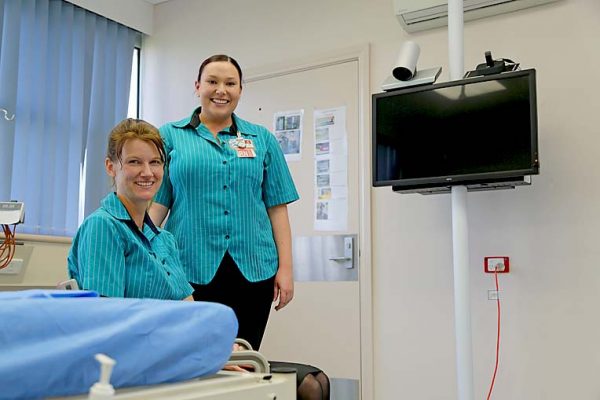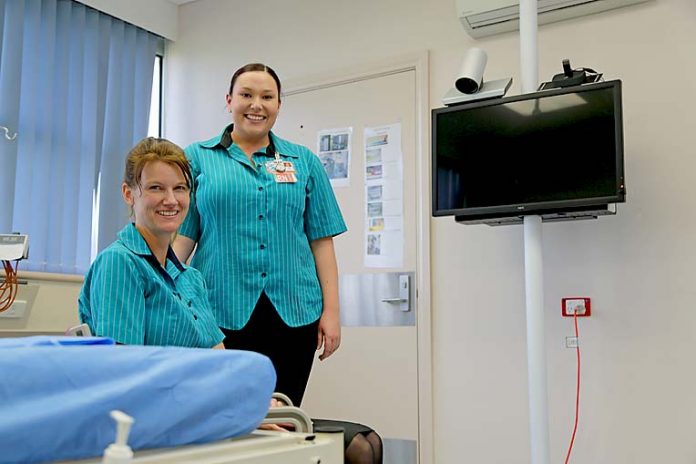
PATIENTS and medical staff at the Millicent Hospital will have access to additional support with the introduction of real-time video technology to connect with experienced rural GPs.
South Australian Virtual Emergency Service (SAVES), which enables country patients to conduct face-to-face consults with Adelaide-based Rural Doctors Workforce Agency GPs using video conferencing equipment, will be rolled out in Penola.
The purpose-designed telehealth technology features two high-resolution cameras and a screen.
The virtual doctor service allows GPs to provide remote medical assistance to triage three, four and five category patients who present to the Penola emergency department when the on-call doctor in unavailable.
As a result, local GPs will have the option of only being called out to treat high acuity patients to reduce fatigue by allowing them to rest at night while low acuity patients can be treated over the SAVES network.
Millicent Hospital director of nursing and executive officer Michelle de Wit welcomed the new technology, saying it had a raft of benefits for staff and patients.
“Triage one and two patients will still be attended to by the doctor, but it will allow some of the lower triage patients to be seen remotely and allow the doctor time to rest,” she said.
“The cameras are all controlled by the doctors in Adelaide and they’re able to speak to the patient and zoom in on wounds.
“The resolution and focus is really high which allows for a higher level of magnification.
“It also benefits nursing staff as they will have that extra layer of support and allow patients to be seen in a timely manner, as they normally are, but with additional support.”
Health Minister Stephen Wade said the system aimed to support local nurses to deliver 24-hour emergency care.
“Accessing medical support remotely allows doctors to take time off between the hours of 11pm and 7am while still ensuring patients receive high quality care close to home,” he said.
Penola and Kingston hospitals have also been identified as one of 13 sites across the state in which the provision of a 24/7 medical service is difficult and will see the further implementation of SAVES.
The system has been operational in 16 other regional locations since December last year after it was launched by the Labor State Government.








